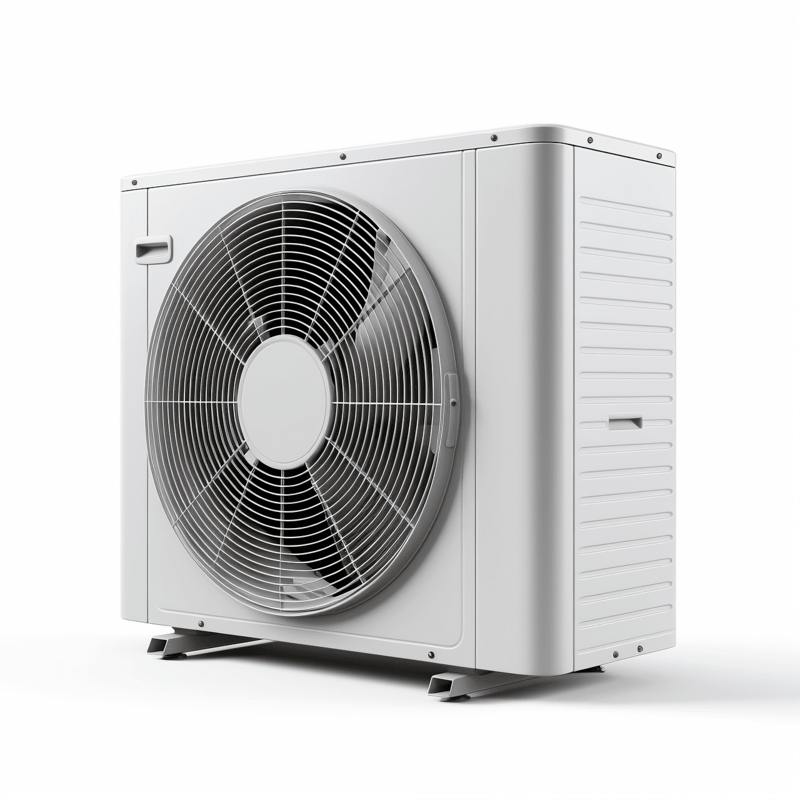Heat pumps have gained popularity in Canada. This can be attributed, in part, to advancements in heat pump technology designed to operate effectively in colder temperatures, among other factors. Let’s analyze the primary benefits and drawbacks of using heat pump systems for the heating and cooling of homes in Canada and its surroundings.
Pros of Heat Pumps in Calgary, AB
Enhanced Technology for Colder Temperatures
The technology of heat pumps has significantly improved their performance in colder climates in Calgary. These advancements ensure that heat pumps remain efficient and effective even during chilly weather to provide heating to homes.
Energy Efficiency and Cost Savings
Heat pumps operate on the principle of transferring heat rather than generating it. Most heat pumps boast efficiency ratings over 100 percent. This indicates that they produce more thermal energy than the electricity they consume. This translates to lower energy costs.
Environmental Sustainability
A notable advantage of heat pumps is their contribution to environmental sustainability. By relying on electricity, which in Canada is predominantly sourced from renewable or nuclear power (over 80 percent), heat pumps align with efforts to reduce reliance on fossil fuels. This aids in combating climate change and eliminates the safety risks associated with traditional gas appliances.
Dual Functionality — Heating and Cooling
Heat pumps serve a dual purpose by functioning as heating and cooling systems. This eliminates the need for separate devices and installations, which results in cost savings. Homeowners benefit from a year-round climate control solution with a single, versatile heat pump.
Cons of Heat Pumps in Calgary, AB
Electricity Costs
While heat pumps are energy-efficient, they run on electricity, which can be costlier than natural gas. Despite their efficiency, the higher cost of electricity may offset the potential savings.
Cold Climate Limitations
Despite technological advancements, heat pumps may face limitations in freezing climates. While most models are efficient down to approximately -30 degrees Celsius, their effectiveness decreases as temperatures approach this limit. Supplemental heating sources may be necessary during the coldest days in regions with harsh winters.
Backup Heating: In extremely cold climates, it’s common to have a backup heating system, such as electric resistance heating or a furnace, to supplement the heat pump during the coldest days.
Refrigerant Environmental Impact
Although heat pumps are considered environmentally friendly, concerns arise from the refrigerants they use. Regular maintenance, prompt leak repairs, and proper disposal are crucial to mitigate these concerns.
Initial Purchase and Installation Costs
Investing in a heat pump involves higher upfront costs compared to traditional heating and cooling systems. While a single heat pump may be cost-effective in the long run, the initial expenses can be a barrier for some homeowners. Geothermal systems, in particular, come with significantly higher installation costs.
Pros and Cons of Heat Pumps FAQs
What is a heat pump, and how does a heat pump work in Calgary’s climate?
A heat pump has the capability to both warm and cool a designated area by transferring heat between the interior and exterior environments. In winter, it extracts heat from the outdoor air and transfers it indoors to warm the space. In summer, it reverses the process to cool the indoor air.
Are heat pumps suitable for Calgary’s cold winters?
Yes, heat pumps can be effective in Calgary’s climate, but it’s essential to choose a model with good cold-weather performance. Some heat pumps may struggle in extremely low temperatures, so it’s recommended to look for units specifically designed for cold climates or consider a dual-fuel system that incorporates a backup heating source for extremely icy days.
What are the energy efficiency benefits of using a heat pump in Calgary?
Heat pumps are known for their energy efficiency, as they transfer heat rather than generate it. This can result in lower energy consumption and reduced utility bills. Heat pumps are designed to work in a range of temperatures, but their efficiency can be affected by extreme cold conditions. There are two main types of heat pumps: air-source heat pumps and ground-source (geothermal) heat pumps.
Air-Source Heat Pumps:
These are the more common types of heat pumps. They absorb heat from the outdoor air and transfer it indoors.
In very cold temperatures, the efficiency of air-source heat pumps can decrease. As the outdoor temperature drops, the heat pump has to work harder to extract heat from the colder air.
Some modern air-source heat pumps are designed with advanced technology to operate efficiently in colder climates. These may include features like variable-speed compressors and additional heating elements to assist during extremely cold weather.
Ground-Source (Geothermal) Heat Pumps:
Geothermal heat pumps exchange heat with the ground, which maintains a more stable temperature compared to the outdoor air.
Ground-source heat pumps are generally more efficient in cold temperatures compared to air-source heat pumps. They are less affected by extreme weather conditions because the ground temperature remains more consistent.
Conclusion
Before making any decisions regarding heat pump installation, it’s recommended to consult with a qualified HVAC professional; to assess your specific needs and ensure that you choose the system suitable for Calgary and its surroundings’ local climate and meets energy efficiency standards.






